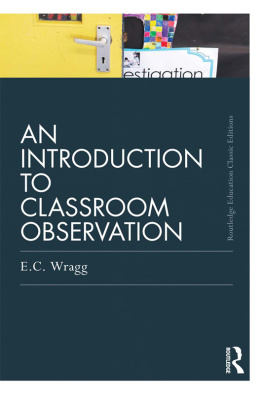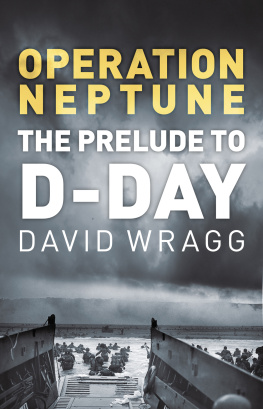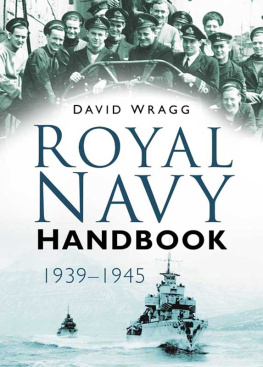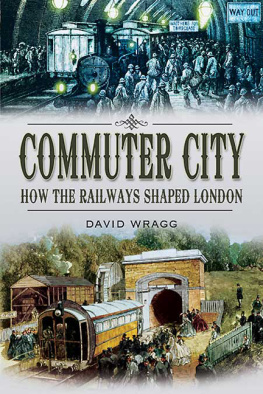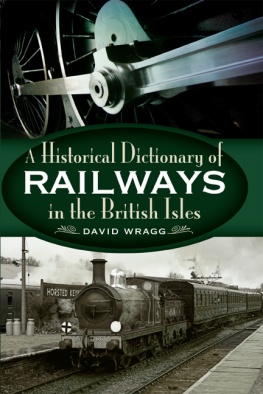Wragg Ted - An Introduction to Classroom Observation (Classic Edition)
Here you can read online Wragg Ted - An Introduction to Classroom Observation (Classic Edition) full text of the book (entire story) in english for free. Download pdf and epub, get meaning, cover and reviews about this ebook. publisher: Taylor & Francis Group, genre: Religion. Description of the work, (preface) as well as reviews are available. Best literature library LitArk.com created for fans of good reading and offers a wide selection of genres:
Romance novel
Science fiction
Adventure
Detective
Science
History
Home and family
Prose
Art
Politics
Computer
Non-fiction
Religion
Business
Children
Humor
Choose a favorite category and find really read worthwhile books. Enjoy immersion in the world of imagination, feel the emotions of the characters or learn something new for yourself, make an fascinating discovery.
An Introduction to Classroom Observation (Classic Edition): summary, description and annotation
We offer to read an annotation, description, summary or preface (depends on what the author of the book "An Introduction to Classroom Observation (Classic Edition)" wrote himself). If you haven't found the necessary information about the book — write in the comments, we will try to find it.
Wragg Ted: author's other books
Who wrote An Introduction to Classroom Observation (Classic Edition)? Find out the surname, the name of the author of the book and a list of all author's works by series.
An Introduction to Classroom Observation (Classic Edition) — read online for free the complete book (whole text) full work
Below is the text of the book, divided by pages. System saving the place of the last page read, allows you to conveniently read the book "An Introduction to Classroom Observation (Classic Edition)" online for free, without having to search again every time where you left off. Put a bookmark, and you can go to the page where you finished reading at any time.
Font size:
Interval:
Bookmark:
An Introduction to Classroom Observation
A deeply insightful account of a great educator and an intrepid defender of teachers and their professional expertise and dignity. Ted Wragg speaks with clarity, showing how difficult ideas and perspectives can be put across in ordinary language which all can understand. If you are puzzled about rating scales, static sampling, interaction analysis, triangulation, phenomenology or ethnomethodology, then you would do well to start here.
Professor Richard Pring, University of Oxford, UK
How does classroom observation support your professional development?
How can you observe as effectively as possible?
Highly regarded as one of the most widely used and authoritative texts on this topic, An Introduction to Classroom Observation is an essential text for anyone serious about becoming a good teacher or researcher in education.
Now part of the Routledge Education Classic Edition Series, E.C. Wraggs straightforward guide includes a combination of case studies, photographs and illustrations to show how various people study lessons for different purposes and in different contexts. It outlines a range of approaches in clear language and gives examples of successful methods that have been employed by teachers, student teachers, researchers and pupils.
With a new preface from Professor Richard Pring, the classic edition of this indispensable text is for a new generation of education professionals looking to become effective observers in the classroom.
E.C. Wragg was Professor of Education at the University of Exeter, UK. He was one of the finest international experts on research into teaching and learning, and always wrote with the teacher in mind. A regular columnist in the Times Educational Supplement and the Guardian, he was in demand for radio and TV education features. The Ted Wragg Teaching Award for Lifetime Achievement honours his memory, and is given annually to educators who are considered to have shown excellent devotion to teaching throughout their careers.
Routledge Education Classic Edition Series
The Routledge Education Classic Edition Series celebrates Routledges commitment to excellence in scholarship, teaching, and learning within the field of education. Written by experts, these books are recognised as timeless classics covering a range of important issues, and continue to be recommended as key reading for education students and professionals in the area. With a new introduction that explores what has changed since the books were first published, where the field might go from here, and why these books are as relevant now as ever, the series presents key ideas to a new generation of educationalists.
Also available:
Apple, Education and Power (1982, second edition published 1995)
Drummond, Assessing Childrens Learning (1993, second edition published 2007)
Gipps, Beyond Testing (1994)
Kincheloe, Teachers as Researchers (1991, second edition published 2002)
Powell and Jordan, Autism and Learning (1997)
Smith, Understanding Reading (1971, 1978, 1982, 1989, 1994, sixth edition published 2004)
Swanwick, Teaching Music Musically (1999)
Tripp, Critical Incidents in Teaching (1993)
Wragg, An Introduction to Classroom Observation (1993, second edition published 1999).
An Introduction to
Classroom Observation
Classic Edition
E. C. Wragg

First published 2012
by Routledge
Second edition published 1999
This classic edition published 2012
by Routledge
2 Park Square, Milton Park, Abingdon, Oxon OX14 4RN
Simultaneously published in the USA and Canada
by Routledge
711 Third Avenue, New York, NY 10017
Routledge is an imprint of the Taylor & Francis Group, an informa business
1994, 1999 E. C. Wragg
2012 Preface, Richard Pring
The right of E. C. Wragg to be identified as author of this work has been asserted in accordance with sections 77 and 78 of the Copyright, Designs and Patents Act 1988.
All rights reserved. No part of this book may be reprinted or reproduced or utilised in any form or by any electronic, mechanical, or other means, now known or hereafter invented, including photocopying and recording, or in any information storage or retrieval system, without permission in writing from the publishers.
Trademark notice: Product or corporate names may be trademarks or registered trademarks, and are used only for identification and explanation without intent to infringe.
British Library Cataloguing in Publication Data
A catalogue record for this book is available from the British Library
Library of Congress Cataloging in Publication Data
Wragg, E.C. (Edward Conrad)
An introduction to classroom observation/Ted Wragg. Classic ed.
p. cm.
Includes bibliographical references and index.
1. Observation (Educational method) 2. TeachersTraining of. I. Title.
LB1731.6.W73 2012
370.711dc23
2011035945
ISBN: 978-0-415-68849-9 (hbk)
ISBN: 978-0-415-68850-5 (pbk)
ISBN: 978-0-203-35727-9 (ebk)
Contents
RICHARD PRING
Figures
Preface
I once observed a French lesson, part of which was taught entirely in French, with plenty of rapid-fire interaction between teacher and pupils. I was studying individual pupils in the class, so I kept note of who answered the teachers questions. After the lesson I asked the teacher to say roughly how many pupils had given an oral answer to her questions. Oh, I dont know, there were lots of hands in the air, she replied, I think most of them did. About twenty to twenty-five, was it? The answer was eight. Perhaps it seemed like a lot more, but eight pupils, mainly sitting in the centre of the classroom, had actually responded. Careful classroom observation can help illuminate even the most familiar of events.
Observing the behaviour of our fellow humans is something we all start in babyhood and never finish until they finally screw the lid down on us. It is one of those taken-for-granted activities that occurs every day of our lives, in work, in the family, and in social situations. Much of what we see is repeated versions, with variations, of what we have observed many times before. It is because we have crossed the road thousands of times that we know what to look for, though the context will be different on each new occasion. We have the means of recognising what is familiar and what is novel, and this puts us in a position to make decisions rapidly about the speed of vehicles, their distance away, likely position in a few seconds, our own capability of walking or running at a certain pace and in a particular direction. Without the powers of observation and deduction most of us would have been dead years ago.
So if we already know all about our daily lives, why should we bother to hone the skills of observation? There are many reasons. First of all we may delude ourselves about what is happening. We often observe what we want to see: harmonious relationships, effective practice, rules that are consistently followed. We may ignore or overlook what we dont wish to see: disjunction, ineffectiveness, unruliness. I have seen thousands of lessons and read accounts of many more, yet often when I go into this familiar school environment, alongside all the events that appear to resemble countless other similar happenings, I still, from time to time, notice something different. Classrooms are places that are capable of unfolding both familiarity and novelty. Even watching a tedious lesson is a challenge. In fact, I sometimes find I am more busy in a boring lesson than an exciting one, because there are so many possibilities to explore.
Next pageFont size:
Interval:
Bookmark:
Similar books «An Introduction to Classroom Observation (Classic Edition)»
Look at similar books to An Introduction to Classroom Observation (Classic Edition). We have selected literature similar in name and meaning in the hope of providing readers with more options to find new, interesting, not yet read works.
Discussion, reviews of the book An Introduction to Classroom Observation (Classic Edition) and just readers' own opinions. Leave your comments, write what you think about the work, its meaning or the main characters. Specify what exactly you liked and what you didn't like, and why you think so.

